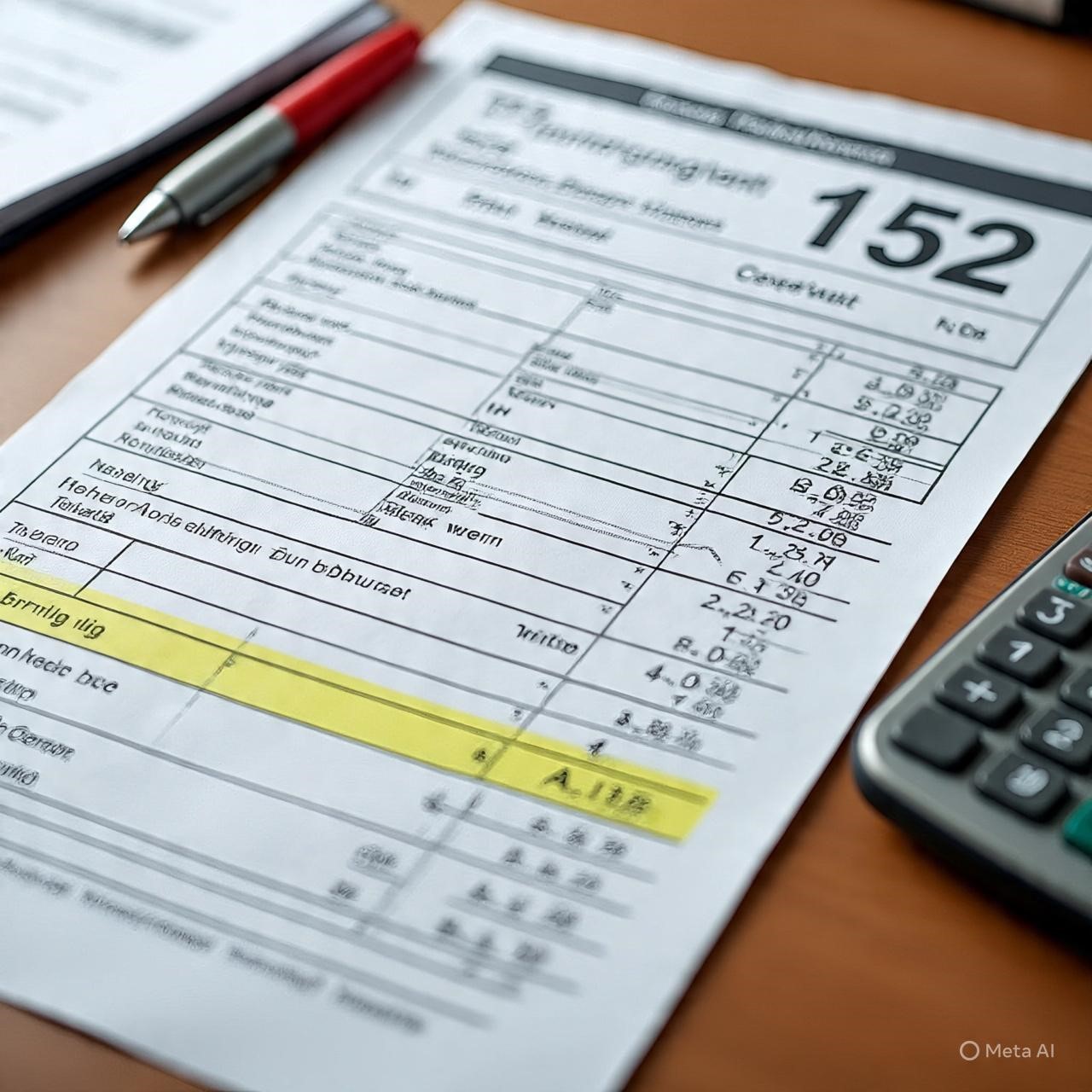If you have checked the IRS “Where’s My Refund?” tool during tax season, you may have seen a message referencing Tax Topic 152. For many taxpayers, this can be confusing or even concerning. Does it mean there’s a problem with your return? Is the IRS auditing you?
The short answer: Tax Topic 152 is a routine IRS reference code that simply means your tax return is being processed. It’s part of the IRS’s standard communication system and appears frequently during refund tracking.
Understanding IRS tax topic codes like this one can help reduce stress and uncertainty while you wait for your refund. In this article, we’ll explain exactly what Tax Topic 152 means, why you might see it, how it compares to other IRS codes, and what steps you should (and shouldn’t) take.
Table of Contents
ToggleDefinition and Meaning of Tax Topic 152
What is Tax Topic 152?
Tax Topic 152 is an IRS reference code that indicates the IRS has received your tax return and is processing your refund. It does not point to any error, audit, or penalty—it’s simply a status update.
You’ll most often encounter this message when using:
- The “Where’s My Refund?” tool on IRS.gov
- The IRS2Go mobile app
Both platforms are designed to provide quick, standardized updates on your refund status, and Tax Topic 152 is one of the most common messages they display.
What Tax Topic 152 Indicates About Your Tax Refund
When you see Tax Topic 152, it generally means:
- Your return has been received and is in the processing queue.
- The IRS is actively reviewing it for accuracy and compliance.
Typical Timeframes
- E-filed returns: Refunds are usually issued within 21 days.
- Paper-filed returns: Processing may take up to 6 weeks or longer.
However, the time may be extended if your return requires additional verification or falls into one of the special processing categories discussed below.
Reasons for Refund Delays Associated with Tax Topic 152
While Tax Topic 152 itself is normal, you might see it for longer than expected if your return experiences a delay. Common causes include:
1. Claiming Certain Tax Credits
If you claimed the Earned Income Tax Credit (EITC) or the Additional Child Tax Credit (ACTC), the IRS is legally required to hold refunds until mid-February to perform extra verification.
2. Amended Returns or Injured Spouse Claims
These require manual review, which can slow processing.
3. Identity Verification or Data Mismatches
If your information doesn’t match IRS records, they may request additional documentation to verify your identity.
4. IRS Backlog and Staffing Issues
During peak filing season—or in years with high backlogs—processing times can extend beyond the standard window.
Tip: Filing an accurate, complete return and using e-file with direct deposit is the best way to minimize delays.
Tax Topic 152 vs. Other IRS Tax Topics and Codes
Tax Topic 152 is not the only code the IRS uses. Some others include:
- Tax Topic 303 – Indicates there are errors in your return.
- Tax Topic 151 – Means your refund is being withheld or offset for debts.
Key Difference
Unlike many other codes, Tax Topic 152 is neutral—it doesn’t indicate a problem. If you see another code or message, you should review IRS guidance for that specific topic.
How to Monitor the Status of Your Refund with Tax Topic 152
IRS Tools You Can Use
- Where’s My Refund? – Updated daily, usually overnight.
- IRS2Go Mobile App – Offers the same information in a mobile-friendly format.
You’ll need:
- Social Security number or ITIN
- Filing status
- Exact refund amount
Other IRS Resources
- IRS Telephone Assistance: 1-800-829-1040 (expect wait times during tax season)
- IRS Online Account: View your tax transcripts for detailed updates
What Should Taxpayers Do When They See Tax Topic 152?
Recommended Steps
- Be patient – Most refunds are issued within the stated timeframes.
- Verify accuracy – Ensure your tax return information matches IRS records.
- Avoid duplicate filings – Submitting another return will only cause delays.
When to Contact the IRS
If it’s been:
- More than 21 days since e-filing
- More than 6 weeks since mailing a paper return
…you can call the IRS for assistance.
Tips to Avoid Future Delays
- File electronically
- Use direct deposit
- Submit your return early in the season
- Double-check all information before filing
Impact of Tax Topic 152 on Different Types of Filers
First-Time Filers
May see longer processing times as the IRS verifies identity and information.
Filers with Dependents or ITIN Applications
Processing may be extended due to additional documentation requirements.
Complex Returns
Returns involving amendments, multiple income sources, or large credits may require manual review, extending the Tax Topic 152 phase.
Common Misconceptions and FAQs About Tax Topic 152
Misconception 1: “It means my refund is denied.”
Fact: It only means your return is being processed.
Misconception 2: “It signals an audit.”
Fact: Tax Topic 152 does not indicate an audit or penalty.
Misconception 3: “My refund will be delayed indefinitely.”
Fact: Most taxpayers still receive refunds within normal timeframes, unless additional verification is required.
Conclusion
Tax Topic 152 is one of the most common—and least concerning—messages taxpayers see when tracking refunds. It simply means the IRS has received your return and is processing your refund.
While delays can happen for a variety of reasons, understanding what this code means can save you unnecessary stress. Use the IRS’s official tools to monitor your refund, avoid duplicate inquiries, and ensure your future filings are accurate and timely.
Staying informed and patient is the best approach while your refund works its way through the IRS system.


